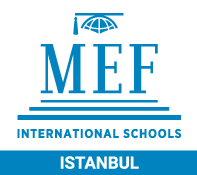In grades 9 and 10 social studies classes, students explore ideas associate with History and Economics:
In grades 9 and 10 social studies, students continue to explore and evaluate ideas and arguments in a structured, critical, and analytical way through the study of history and economics. Students are encouraged to communicate and defend views and opinions as well as respect those of others. This ensures that students are equipped to participate constructively in society and the economy – locally, nationally and globally.
Throughout the history course, students are given the opportunity to:
- Develop an interest in and enthusiasm for learning about and understanding the past
- Explore historical concepts such as cause and consequence, change and continuity, and similarity and difference
- Appreciate historical evidence and its usage to build an argument
- Gain a greater understanding of international issues and inter-relationships
- Learn how to present clear, logical arguments
Throughout the economics course, students are given the opportunity to:
- Understand economic terminology, concepts and theories
- Distinguish between facts and value judgements in economic issues
- Use the tools of economic analysis to discuss the impacts in local and global contexts
- Express economic ideas logically and clearly in a written form
- Apply economic understanding to current economic issues including international trade and globalisation
In grades 11 and 12 social studies classes, students choose one of the two IB courses offered at MEFIS:
- Economics (SL, HL)
- ITGS (SL, HL)
The aims of all subjects in IB Individuals and Societies are to:
- Encourage the systematic and critical study of human experience and behavior; physical, economic and social environments; the history and development of social and cultural institutions
- Develop in the student the capacity to identify, to analyze critically, and to evaluate theories, concepts and arguments about the nature and activities of the individual and society
- Enable the student to collect, describe, and analyze data used in studies of society, to test hypotheses and interpret complex data and source material
- Promote the appreciation of the way in which learning is relevant to both the culture in which the student lives, and cultures of other societies
- Develop an awareness in the student that human attitudes and opinions are widely diverse and that a study of society requires an appreciation of such diversity
- Enable the student to recognize that the content and methodologies of the subjects in Group 3 are contestable and that their study requires the toleration of uncertainty
Students are assessed both internally and externally at the end of Grade 12 through IB examinations. The internally assessed components are also externally moderated by IB.
IB Economics is a dynamic social science, forming part of the study of individuals and societies. The study of economics is essentially about the concept of scarcity and the problem of resource allocation. Although economics involves the formulation of theory, it is not a purely theoretical subject: economic theories can be applied to real-world examples. Neither is economics a discrete subject since economics incorporates elements of history, geography, psychology, sociology, political studies and many other related fields of study.
The scientific approach characterizes the standard methodology of economics. This methodology progresses from problem identification and hypothesis formulation to testing to arrive at a conclusion. Alongside the empirical observations of positive economics, students of the subject are asked to formulate normative questions. Encouraging students to explore such questions forms the central focus of the economics course.
The IB Diploma Programme Information Technology in a Global Society (ITGS) course is the study and evaluation of the impacts of information technology (IT) on individuals and society. It explores the advantages and disadvantages of the access and use of digitized information at the local and global level. ITGS provides a framework for the student to make informed judgments and decisions about the use of IT within social contexts.
Although ITGS shares methods of critical investigation and analysis with other social sciences, it also considers social and ethical considerations that are common to other subjects in group 3. Students come into contact with IT on a daily basis because it is so pervasive in the world in which we live. This increasingly widespread use of IT inevitably raises important questions with regard to the social and ethical considerations that shape our society today. ITGS offers an opportunity for a systematic study of these considerations, whose range is such that they fall outside the scope of any other single discipline.



